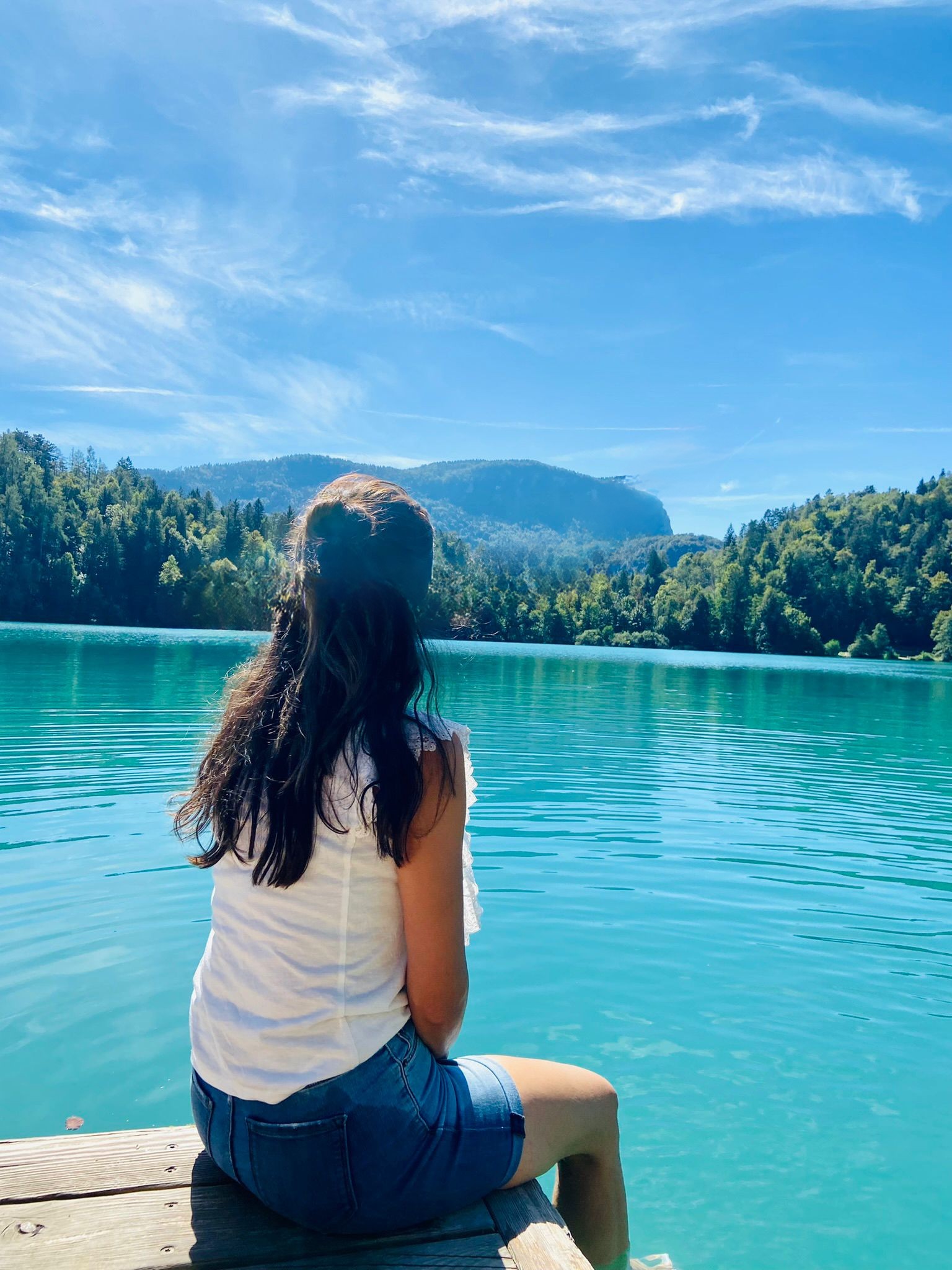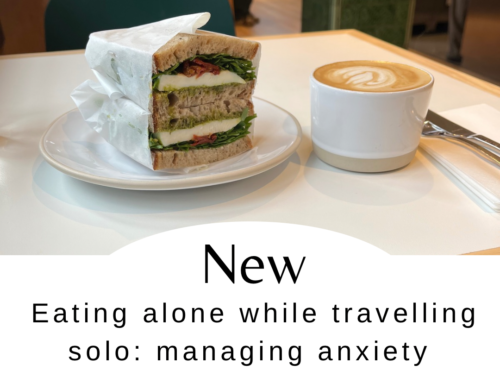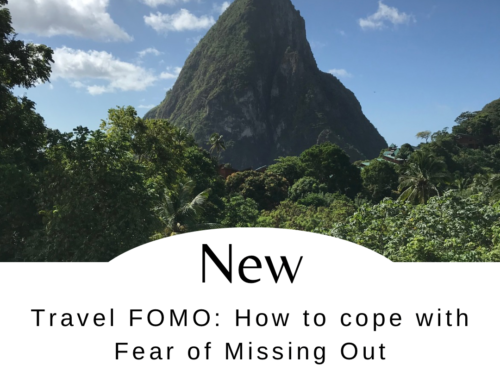Elise Dyer, Clinical Associate Psychologist & Clinical Lecturer
Anxiety is a common and often overwhelming experience that can present significant challenges for those who travel alone. I vividly remember my first solo trip; it was a pivotal moment in my personal growth. As I prepared to step onto the plane, I could feel the anxiety wash over me—those familiar butterflies in my stomach, a sense of shakiness, my heart racing, and feelings of wanting to go back instead of stepping on that plane. At that moment, I felt incredibly alone and vulnerable. I glanced around, hoping to spot someone else travelling solo, but all I saw were families and couples, which only deepened my feelings of isolation.
It’s important to know that you’re not alone in feeling this way and that managing anxiety is possible. With the right strategies and support, you can navigate these feelings and find ways to make your journey more comfortable.
What causes anxiety?
Understanding why people experience different levels of anxiety can be challenging, and there isn’t a clear answer. Many factors, including our genetics and the environments we find ourselves in, can influence our experiences. It’s essential to recognize that while we may not fully understand what causes anxiety for each individual, there is hope. You can manage anxiety effectively, even without knowing its exact origins. You’re not alone in this journey.
Although life presents numerous unavoidable stressors, individuals can learn techniques to manage their anxiety effectively. This enables them to pursue their objectives and aspirations, even in the presence of anxiety.
Does anxiety get worse if I don’t take any action to address it?
Research indicates that anxiety typically follows a bell-curve pattern. In situations that provoke anxiety, individuals often experience a peak in their anxiety levels. This peak will decrease over time if the person is able to stay in the situation. On the other hand, when individuals opt to avoid or withdraw from such situations, they miss out on the opportunity to observe this natural reduction in anxiety.
In my personal experience, I made the decision to remain on that plane, and I observed a gradual decline in my anxiety levels. I am thankful that I chose to travel alone, despite initially experiencing feelings of nervousness.
Why can travelling alone trigger anxiety?
Solo travel can evoke a sense of anxiety, as individuals must depend exclusively on their own resources, without the support of a companion for collaborative problem-solving.
I recall an experience in which I neglected to pack my phone charger, leading to a moment of panic due to the absence of a backup charger and the inability to borrow one from others. Fortunately, I was able to seek assistance from the hotel receptionist, who kindly directed me to an affordable store where I could purchase a travel charger at a reasonable price.
I also remember a having difficulty due to not having someone else to help with in applying sunscreen to my back. This challenge remains unresolved, and I continue to seek a viable solution!
People have varying degrees of comfort with solitude and the act of seeking assistance from others. It is important to recognize that there are no definitive right or wrong responses in this context. Additionally, it is entirely reasonable to experience feelings of apprehension when travelling alone.
What psychological tools can help us to manage anxiety?
Understanding anxiety symptoms through learning can help us to understand what is going on in our bodies and minds. Knowledge serves as a powerful tool; when individuals comprehend the nature of their experiences, it becomes more manageable to address them effectively. It is advisable to engage with literature on anxiety to recognize that none of the symptoms pose a danger or harm. While these symptoms may be distressing and intense, they do not lead to physical injury and do not signify an underlying issue with one’s health.
Grounding techniques can also serve as a valuable strategy for managing anxiety. By engaging your senses, you can redirect your focus to the present moment. This technique involves identifying four items you can see, three sounds you can hear, two surfaces you can touch, and one scent you can detect. Such an approach facilitates a greater awareness of your immediate surroundings, thereby reducing the tendency to become consumed by anxiety-provoking thoughts.
According to Cognitive Behavioural Therapy (CBT), as articulated by Padesky in 1990, learning to identify negative and anxiety-inducing thoughts is essential. Traditionally, in CBT, this involves using a thought diary. This method facilitates the challenging and subsequent replacement of these thoughts with more rational alternatives. As a result, individuals may experience a reduction in anxiety, given that emotions are inherently linked to thoughts and behaviours. For more on this check out Dr Charlotte’s posts on How to spot unhelpful thoughts when travelling
Research indicates that mindfulness is an effective strategy for managing anxiety within therapeutic contexts. Individuals experiencing anxiety often find themselves overwhelmed by internal emotions and symptoms, and this fixation on anxious thoughts can exacerbate their feelings of distress. Mindfulness practices redirect attention to the present moment, which can help alleviate racing thoughts and enhance overall mental well-being. Techniques such as focusing on one’s breath or engaging in the slow consumption of snacks while paying close attention to the sensations involved are recommended to foster this state of mindfulness.
If you are uncomfortable spending time alone, think about how you can expand your comfort zone prior to your trip. Beginning with small, incremental steps can be instrumental in building confidence prior to engaging in extended travel. This may involve undertaking short trips to different regions within your own country. You might also find it helpful to try navigating to different places in your home country using public transport in order to improve your confidence with this.
Conducting some research and preparing a problem-solving toolkit can significantly alleviate the anxiety associated with solo travel. For instance, it may be beneficial to document potential solutions to common concerns. What actions should be taken if one becomes lost? What strategies can be employed to navigate one’s way? Furthermore, what options are available if one finds themselves disengaged or dissatisfied with the destination?
Visualization can be a deeply impactful tool, especially when we consider how our brains often struggle to differentiate between what we imagine and what we experience in reality. Picture yourself strolling along the streets of your destination, truly savouring each moment, exploring new sights, and finding joy in the journey. This practice can help you feel more connected and excited about what lies ahead.
Lastly, remember your reason for travelling. What is it that you want to achieve by travelling alone? Is it about expanding your comfort zone or about personal growth? Or something else? Having a clear intention for your trip can help you push through those difficult moments when anxiety does show up. For more information check out Dr Jenna’s previous article What are the psychological benefits of travelling alone?
Conclusion
Anxiety can be a debilitating and distressing experience. However, as articulated in Susan Jeffers’ book, “Feel the Fear and Do It Anyway,” individuals can learn to overcome anxiety over time. By gradually exposing ourselves to a diverse range of situations and experiences, we can diminish the impact of anxiety on our lives.
Travelling has consistently been a significant passion of mine. Through my explorations, I have identified numerous benefits to my well-being, including the opportunity to encounter various cultures, experience an array of cuisines, and observe diverse landscapes. Initially, I was fortunate to travel with a partner; however, upon the conclusion of our relationship, I was determined that my passion for travel would not cease. I made the decision to embark on solo travels, an experience that has markedly enhanced my self-esteem and problem-solving abilities. This journey has also revealed to me that I am not alone in pursuing this path; many individuals engage in solo travel, demonstrating that one need not be in a relationship to follow one’s passions.





